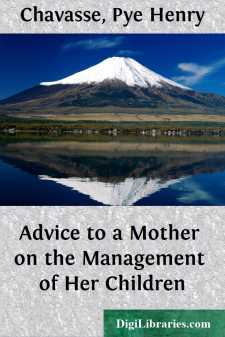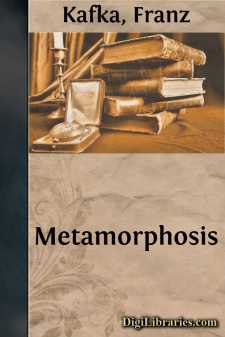Categories
- Antiques & Collectibles 13
- Architecture 36
- Art 48
- Bibles 22
- Biography & Autobiography 813
- Body, Mind & Spirit 142
- Business & Economics 28
- Children's Books 17
- Children's Fiction 14
- Computers 4
- Cooking 94
- Crafts & Hobbies 4
- Drama 346
- Education 46
- Family & Relationships 57
- Fiction 11829
- Games 19
- Gardening 17
- Health & Fitness 34
- History 1377
- House & Home 1
- Humor 147
- Juvenile Fiction 1873
- Juvenile Nonfiction 202
- Language Arts & Disciplines 88
- Law 16
- Literary Collections 686
- Literary Criticism 179
- Mathematics 13
- Medical 41
- Music 40
- Nature 179
- Non-Classifiable 1768
- Performing Arts 7
- Periodicals 1453
- Philosophy 64
- Photography 2
- Poetry 896
- Political Science 203
- Psychology 42
- Reference 154
- Religion 513
- Science 126
- Self-Help 84
- Social Science 81
- Sports & Recreation 34
- Study Aids 3
- Technology & Engineering 59
- Transportation 23
- Travel 463
- True Crime 29
Sort by:
We observe today not a victory of party but a celebration of freedom. . . symbolizing an end as well as a beginning. . .signifying renewal as well as change for I have sworn before you and Almighty God the same solemn oath our forbears prescribed nearly a century and three-quarters ago. The world is very different now, for man holds in his mortal hands the power to abolish all forms of human poverty...
more...
by:
John Bunyan
CHAPTER I. HEAVEN MUST BE RUN FOR. SO RUN, THAT YE MAY OBTAIN.—1 Corinthians ix. 24. Heaven and happiness is that which every one desireth, insomuch that wicked Balaam could say, "Let me die the death of the righteous, and let my last end be like his!" Yet for all this, there are but very few that do obtain that ever-to-be-desired glory, insomuch that many eminent professors drop short of a...
more...
INTRODUCTION Elusive Truth It was the Chicago Tribune of June 13th, 189-, which contained this paragraph under the head-line: "Big Broker Missing!" "The friends of Isidor Werner, a young man prominent in Board of Trade circles, are much concerned about him, as he has not been seen for several days. He made his last appearance in the wheat pit as a heavy buyer Tuesday forenoon. That...
more...
CHAPTER I THE ENGINE LATHE—TURNING AND BORING OPERATIONS The standard “engine” lathe, which is the type commonly used by machinists for doing general work, is one of the most important tools in a machine shop, because it is adapted to a great variety of operations, such as turning all sorts of cylindrical and taper parts, boring holes, cutting threads, etc. The illustration shows a lathe which,...
more...
by:
Havelock Ellis
SEXUAL SELECTION IN MAN. The External Sensory Stimuli Affecting Selection in Man—The Four Senses Involved. Tumescence—the process by which the organism is brought into the physical and psychic state necessary to insure conjugation and detumescence—to some extent comes about through the spontaneous action of internal forces. To that extent it is analogous to the physical and psychic changes which...
more...
PRELIMINARY CONVERSATION 1. I wish to consult you on many subjects appertaining to the management and the care of children; will you favour me with your advice and counsel? I shall be happy to accede to your request, and to give you the fruits of my experience in the clearest manner I am able, and in the simplest language I can command—freed from all technicalities. I will endeavour to guide you in...
more...
I A CAMERA CRIME "Camera!" Kennedy and I had been hastily summoned from his laboratory in the city by District-Attorney Mackay, and now stood in the luxurious, ornate library in the country home of Emery Phelps, the banker, at Tarrytown. "Camera!—you know the call when the director is ready to shoot a scene of a picture?—well—at the moment it was given and the first and second camera...
more...
by:
Emily Bronte
CHAPTER I 1801.—I have just returned from a visit to my landlord—the solitary neighbour that I shall be troubled with. This is certainly a beautiful country! In all England, I do not believe that I could have fixed on a situation so completely removed from the stir of society. A perfect misanthropist’s heaven: and Mr. Heathcliff and I are such a suitable pair to divide the desolation...
more...
by:
Franz Kafka
One morning, when Gregor Samsa woke from troubled dreams, he found himself transformed in his bed into a horrible vermin. He lay on his armour-like back, and if he lifted his head a little he could see his brown belly, slightly domed and divided by arches into stiff sections. The bedding was hardly able to cover it and seemed ready to slide off any moment. His many legs, pitifully thin compared with...
more...
by:
Henry Van Dyke
eace is one of the great words of the Holy Scriptures. It is woven through the Old Testament and the New like a golden thread. It inheres and abides in the character of God,— "The central peace subsisting at the heart Of endless agitation." It is the deepest and most universal desire of man, whose prayer in all ages has been, "Grant us Thy Peace, O Lord." It is...
more...











